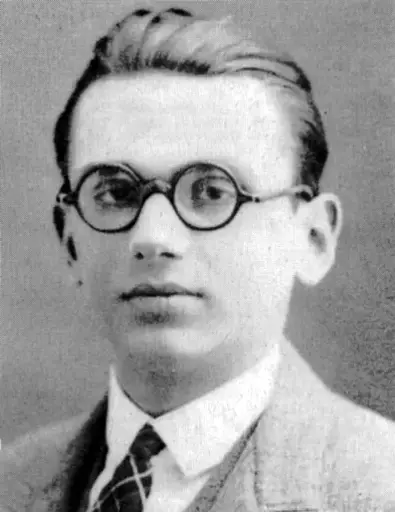Gödel’s Loophole is a supposed “inner contradiction” in the Constitution of the United States which Austrian-American logician, mathematician, and analytic philosopher Kurt Gödel postulated in 1947. The loophole would permit the American democracy to be legally turned into a dictatorship. It has been called “one of the great unsolved problems of constitutional law” by F. E. Guerra-Pujol.



How is there an issue with curtailing the freedom to chose that? It is already restricted in that constitutional changes can require >50% of the votes.
Multiple countries have such restrictions on parts of the constitution. Germany for instance cannot alter the paragraphs stating:
That doesn’t change anything. The idea that certain laws in the German constitution are untouchable doesn’t hold up when we think about the paradox we are discussing. The will of the people can, in theory, change even the most fundamental principles that protect that will. While the Eternity Clause seems to lock certain values, like human dignity and democracy, in place, democracy is about self-determination—the idea that the people can reshape the very rules that govern them. The grundgesetz is subject to constitutional replacement initiated by the people like any other nominal democracy. It’s a foundational idea in modern democracies that the people have the right to scrap a constitution and start again. That can’t really be “outlawed,” because constitutional revolution is by definition beyond constitutional law.
Even within the extant constitutional framework, if enough public support exists, the people could legally change the constitution by modifying the amendment process itself. It could also be changed through judicial reinterpretation of the eternity clause or of the “basic principles.” The invocation of article 48, state of exception, is also an obvious way that these basic principles can be temporarily suspended. While it seems specifically forbidden, the wide latitude 48 gives, especially under conditions where the survival of the state is at stake, does open the door for getting around the eternity clause in multiple ways, some direct and some indirect. The argument that some laws are untouchable overlooks the fact that, ultimately, the will of the people has the power to redefine its own foundational principles. It also overlooks the ways judicial interpretation and states of exception can effectively gut them. So, while the Eternity Clause acts as a safeguard, in the context were discussing it’s just lip service—democracy is about the power to change even the unchangeable, so the idea that “well there’s a rule against changing the rules” is circular and faulty.
While everything you said is true, it’s also worth mentioning that the intention behind eternity clauses is making such changes significantly more difficult under the existing system. They provide far more security than a system such as Britain’s with parliamentary supremacy which prevents Parliament from restricting itself in any way.
Additionally, I believe the psychological difference between a legal constitutional change and one you deem illegal would be massive. It would take much more than a simple supermajority to succeed with such a change, else civil unrest would be the probable result.
I agree with you on both counts. There’s a vast gulf between what is theoretically possible and what is actual or probable. The edge cases I’m referencing always emerge after seismic shifts in the social fabric—whether rapidly through unexpected war or more gradually via sustained economic instability and the rise of populism.
Notably, the latter seems to be unfolding in some modern democracies. What’s new in this dynamic is the role of contemporary digital communication technologies, particularly their use in mis- and disinformation. These tools enable profound social disruption—often translating into political upheaval—at a fraction of the cost of war. By aligning economic and social tensions with a precision-targeted disinformation campaign, one can manufacture dramatic effects with startling efficiency.